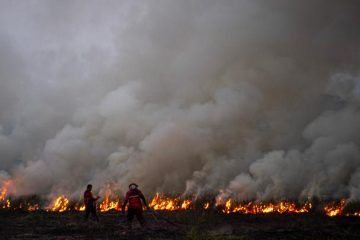From Training to Action: My Path to Inclusive CRPD Reporting in Indonesia and Beyond
By M Rhaka Katresna, Regional Executive Body of ASEAN Youth Forum
This writing is derived from the materials and discussions of the Convention on the Rights of Persons with Disabilities (CRPD) training organized by the CREA team in May. Attending these sessions was a pivotal, indeed, a deeply affecting experience for me as an autistic person representing the ASEAN Youth Forum. The training, held on May 7, 8, 13, 14, 19, 20, 25, 27, and 29, starkly illuminated the significant, and frankly, heartbreaking gaps in Indonesia’s CRPD shadow reporting. It was distressing to learn of the specific lack of gender, sexuality, and, most painfully, autistic representation. This concern was not merely academic; it was amplified by my recent, frustrating experience helping other Indonesian autistic youth access a diagnosis. This essential service, costing around 3 million IDR, remains cruelly uncovered by Indonesia public insurance (BPJS). This very high financial barrier tragically underscores the urgent, and often overlooked, need for truly inclusive advocacy that reaches those most marginalized.
The training powerfully emphasized the CRPD as a groundbreaking human rights instrument, built on the profound and necessary “nothing about us, without us” principle. It champions a rights-based framework focused on autonomy, dignity, and participation, decisively moving beyond outdated, often dehumanizing, medical models. Key articles and General Comments (like GC3 and GC6) courageously broaden the CRPD’s scope to include LGBTI and intersex individuals, and address the compounded discrimination that many face. Yet, despite these progressive strides, persistent and deeply entrenched gaps remain. The absence of explicit articles for indigenous or LGBTI persons, coupled with challenges like criminalization and the continued exclusion of autistic voices, reveals a system still struggling to fully embrace its own ideals.
Through the training, I learned that Organizations of Persons with Disabilities (OPDs) are vital, yet often under-resourced, for CRPD implementation through advocacy, data collection, and strategic litigation. My recent connection with the Indonesian Network of Disability Activists, initiated thanks to the invaluable support of JARUM KAYU (Youth Network for Just and Inclusive Work), is a crucial, hopeful step. The emphasis on coalition building for unifying diverse voices within the disability movement was a key takeaway, reminding us that true strength lies in embracing, rather than suppressing, our inherent diversities.
Despite the CRPD’s robust framework, the challenges persist with a disheartening tenacity: implementation shortfalls for marginalized groups, crippling funding limitations, shrinking civic space, and the insidious rise of anti-rights movements. While my immediate direct action on Indonesia’s current shadow reporting is limited, learning CRPD Shadow Reporting techniques has equipped me with vital tools for future engagement. I am now more committed than ever to advocating for youth, gender, sexuality, and disability concerns across Southeast Asia. This journey from training to action is just beginning, and I feel better prepared, and more fiercely determined, to contribute to a truly inclusive future for all persons with disabilities.




0 Comments